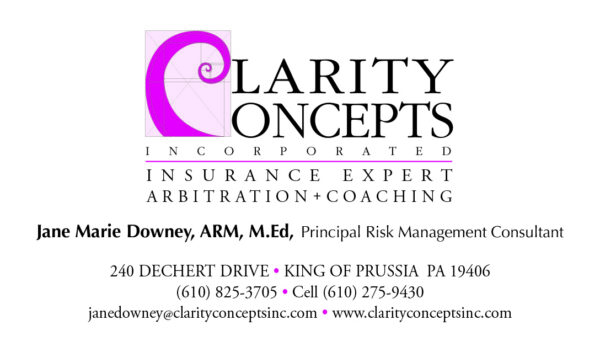Results For Articles or Consultants
Legal - Litigation - Claims
Andrew Sall The Business Interruption Guy Episode 709 This week we welcomed Andy Sall of Complex Claims Resolution, LLC for a show on Business Interruption. What would happen to your business if there was a fire, flood or cyber attack that wiped out your income overnight? Would your insurance cover you? Are you confident that…
Colby Allen is a consultant with AgencyFocus who has over 10 years of industry experience in finance, operations, analytics, and project management. During that time he has worked with regional agencies, national agencies, and a regional carrier. Notable projects include refinement of agency finance and operational reporting processes as well as assist in acquisitions to…
“By investigating a case aggressively at the outset, it was often possible to have a developed factual matter for analysis within 90 days, maybe as long as 6 months, depending on the cooperation of any third‑party claimant and other sources of information. By having that development, one could set accurate reserves earlier. The insurer would know where it stood, and actuaries could also have access to that data and reassess a particular book of business or a particular program to see how profitable it may be over time and make adjustments, rather than canceling a program as unprofitable, should development and accurate reserve setting take longer, such as years versus months.
Another important function was the interaction between claims handlers and underwriters. The two go hand in hand. Underwriters have a certain view of the world and ways they want to approach coverage, but it’s the claims people who must handle the result and keep up to date with the latest case law affecting liability and/or coverage. Such teamwork results in tighter and more successful programs including decisions as to whether or not policy language needs to be changed or the need to add additional exclusions based on developing appellate decisions that might create new perils. That level of communication was important, especially for innovative insurance companies. Where the intent is to cover something as communicated to the applicant, the claim department might not be aware of it, resulting in a claim denial.”
When insurers receive a claim or suit from an insured or third party, they must first make sure that subsequent actions by all parties are in accordance with the conditions required by the policy and applicable laws and regulations. Violating such conditions and guidelines can lead to unintended consequences. For example, courts could refuse to uphold claims denials and possibly recognize bad faith suits, instead. Or an insurance department could find that the insurer broke a law and subsequently impose regulatory penalties. This article discusses how to avoid such outcomes by discussing important, but basic, dos and don’ts, illustrated through real-life examples.
Michelle Villarreal began her claims career over 30 years ago, with Cigna Companies while attending St. Mary’s University in San Antonio. She is the President and CEO of Occupational Accident Risk, Inc, a Third Party Administrator specializing in Texas work injury programs. They have been in the Third Party Administration industry since 2006, offering services…
Andrew helps policyholders prepare, present, and defend their business interruption/business income claims and has been doing so for more than 20 years. His success stems from his ability to understand and communicate the quirks and nuances of his clients’ businesses using both numbers and words. He has turned paltry claim offers and complete denials from…





